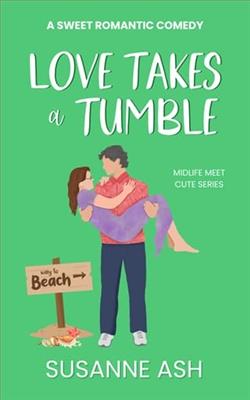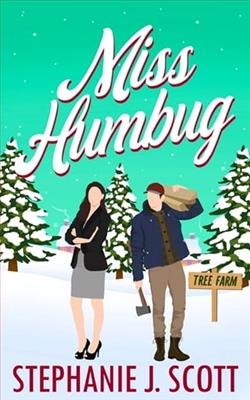Page 3 of Bright We Burn
Though she had mostly killed Danesti boyars, the family most directly responsible for the death of her father and older brother, Toma Basarab had also been eliminated. It did not go over well with the Basarab family, including his wealthy and influential brother, Lucian. She was not sorry. The fewer boyars alive to betray her, the better. They had outlived far too many princes. This had made them comfortable and lazy, assured of their own importance. If boyars now lived in constant fear for their lives? She did not think that was a problem. They needed to know they were the same as all Lada’s citizens: they served Wallachia, or they died.
But Nicolae always wanted more delicacy. More mercy. It was part of the reason she had sent him out here, even though he was one of her best. She had no use for his counsel on moderation and placation. Neither of those were skills she had any interest in cultivating. If boyars served a purpose, they could remain. But they so very rarely did.
Mercy was a luxury Lada’s rule was not yet stable enough to afford. Perhaps someday. Until then, she knew what she was doing was both necessary and working.
She breathed in the sharp, cold air, the scent of woodsmoke beckoning them toward warmth and food. They rode across the fields, through the Wallachia she had carved free from the failure of the past. “I addressed Lucian Basarab’s concerns. It is all taken care of. I am a very good prince.”
Nicolae laughed. “When you are not busy cutting babies in half.”
“Oh, that takes almost no time. They are such small things, after all.”
* * *
A few days later, satisfied that Nicolae had her troops well under control, Lada rode along the same banks she had traveled twice before. Once, as a girl with her father discovering her country. And then with her men in an attempt to take that country back.
This time she rode alone. She paused at a bend in the river where a hidden cave contained a secret passage down from the ruins of the mountain fortress.
But they were ruins no longer. There was no solitude to be found here today. Lada listened to the chisels, the shouts of men, the clinking of metal chains. Here, at last, a promise fulfilled: she had come back to rebuild her fortress.
She rode slowly along the narrow switchbacks leading up the steep mountainside. This morning, she had dressed in her full uniform, complete with her red satin hat marking her as the prince. Where she passed, her soldiers bowed. And the men and women working cowered, ducking out of the way.
Near the top, as the new walls of her fortress loomed gray and glorious from the peak, Bogdan came out to meet her. She let him help her down from her horse, his hands lingering at her waist.
“How is it?” She devoured the walls with her eyes. Her silver locket, given to her by Radu and filled with the flower and tree clipping she had kept with her all their long years away, felt heavy around her neck, as though relieved to be home, too.
“Nearly finished.”
A man in chains staggered past, pushing a cart filled with stones. His clothes were ragged and stained, only a hint of their former finery showing through. She much preferred Lucian Basarab this way. Behind him, his wife and their two children pushed more carts. The children were dead-eyed, trudging numbly along. Lucian Basarab looked up, but did not seem to see her. He collapsed on the side of the path.
One of her soldiers hurried forward, a club in his hand. Lada did not know whether Lucian Basarab was dead. It did not matter. There were more to take his place. Just like the rest of her Wallachia, the fortress was being remade at remarkable speed thanks to the unwilling efforts of those who opposed her.
At last she had found something that boyars were good for.
“Show me my fortress,” Lada said, striding past her foes and into her triumph.
Constantinople
SOMEDAY RADU WOULD NOT long for a time when he was certain things were terrible but had no idea just how much worse they were about to get.
This day, however, he was plagued with memories of riding this same road to Constantinople with Nazira and Cyprian at his side. He had been so nervous, so frightened, so determined to make something of his time there. To prove himself to Mehmed.
He pitied the man he had been on that ride. And he missed him. Riding toward the city today, all he felt was the absence of Nazira and Cyprian. The absence of his assurance that he was doing the right thing. The absence of his faith in Mehmed. The absence of his faith in faith itself.
It was a very lonely road.
He had not planned to return to Constantinople. The city was haunted for him, and forever would be. After Mehmed took it, Radu had returned to Edirne at the first possible opportunity. Both to escape, and to be with Fatima. The guilt he carried was nothing compared to the debt he owed her for losing her wife, and so, to ease some of Fatima’s suffering, he endured his anguish at being around her. There was nothing else he could do for Nazira.
All his letters—joined by Kumal’s and even Mehmed’s efforts—had yielded no news. Nazira, Cyprian, and the servant boy Valentin had disappeared. He had watched them sail away from the burning city, swallowed up by smoke and distance. He had sent them away so they could live, but he feared he had simply found another way for them to die. Every day Radu prayed that they had not joined the thousands sent to anonymous graves. He could not bear the idea that the people he longed for might not exist anymore.
And so he sent more letters, and waited at their home in Edirne, where he would be easy to find.
But then Mehmed had written. A request from the sultan was never a request—it was a command. Though Radu considered rejecting Mehmed’s invitation to join him in Constantinople, in the end he did what he always did: he returned to Mehmed.
Fatima had enough faith for both of them that all would be well. She waited at the window of their house in Edirne every day. Radu imagined her there now, in the same place she had been when he left. Would she wait there fruitlessly for the rest of her life?
A passing cart startled him from his gloomy reverie. The road to Constantinople had been empty last time, cleared by the specter of war hanging over the countryside. Now traffic flowed to and from the city like blood through a vein. Carrying life in and out in a constant pulse. The city was no longer a dying thing.
Like arms reaching out to welcome—or drag—him in, the gates were open. Radu tamped down the panic that arose at seeing them that way. He had spent so long both defending them and praying they would fall, his body did not know how to respond to seeing them function as city gates should.















